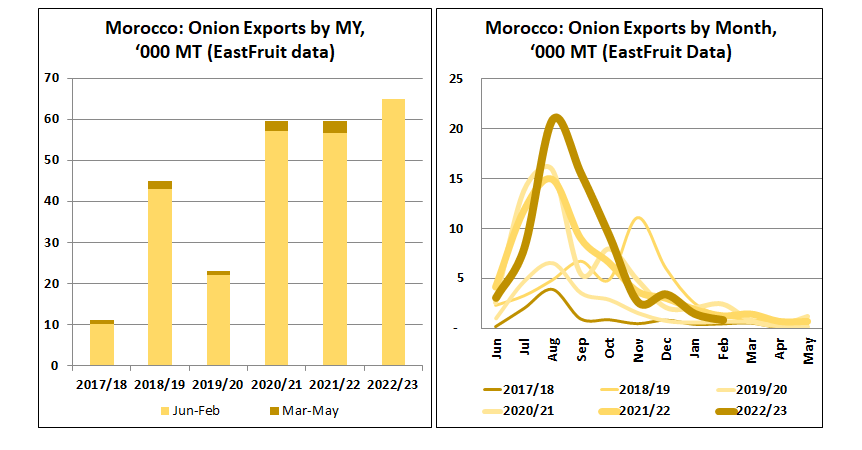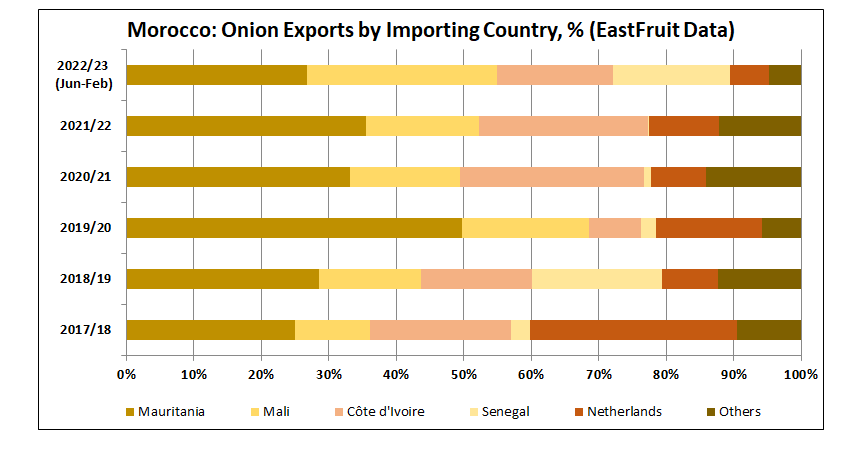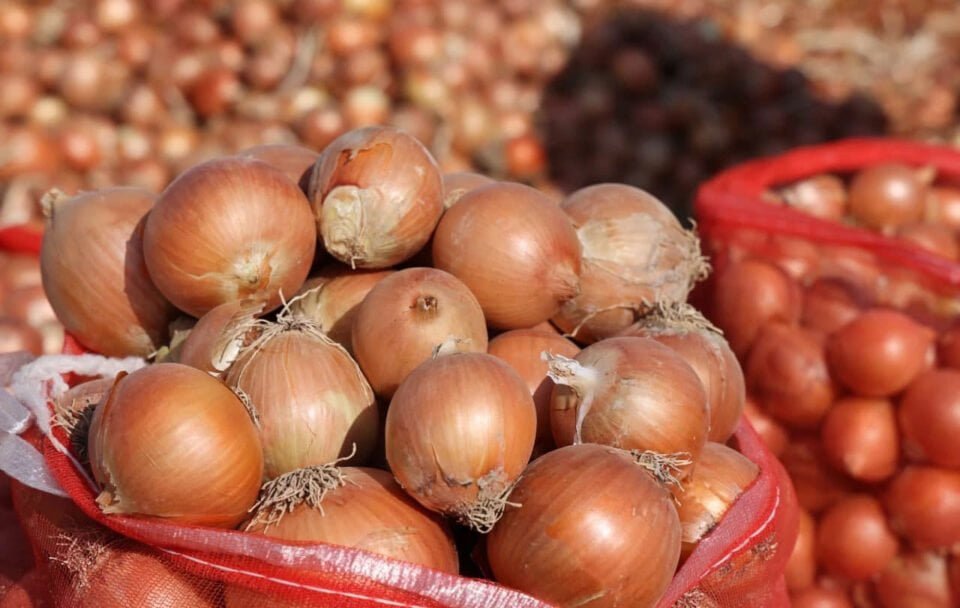Despite the most severe drought over the past three decades in Morocco in summer 2022, the country continued to increase onion exports, according to EastFruit.
In the first nine months of the current MY (June 2022 – February 2023), Morocco has already exported above 65,000 tonnes of onions, more than in the whole previous MY 2021/22 (60,000 tonnes). Furthermore, Moroccan onion exports have marked a 6-fold rise over the past five years!

Onions should be mentioned as one of the most export-oriented vegetable categories in Morocco. In 2022, onions were the third most exported vegetable from Morocco after tomatoes and bell peppers. Onion exports usually peak in July-August and turn to minimum after February.
Read also: Morocco: imports of raisins up 20-fold in just five years!
The Moroccan onion export geography has also changed over the past years. In the MY 2017/18, Moroccan exporters focused mostly on Mauritania, Côte d’Ivoire, and some other African countries. Along with that, about a third of onion export volumes had the Netherlands as their destination point.

As of today, the Netherlands account for just 6% of total onion exports from Morocco. Meanwhile, the shares of Senegal, Mauritania and Mali have grown considerably, reaching 16%, 26% and 28%, respectively. Furthermore, Morocco is now the largest exporter of onions to Mali and ranks second among onion suppliers in Senegal and Mauritania.
Thus, onion exports from Morocco are currently focused on the West Africa, or rather the western part of the African Sahel. EastFruit has previously reported that Sahel countries are forced to increase imports of many agricultural commodities. Sahel is a rather specific region of Africa with seasonal monsoons causing floods and interсhanging with dry periods. Nowadays Sahel is under a serious threat of famine, and Morocco, along with other suppliers, such as the Netherlands or Belgium, is covering produce deficit there.
Nevertheless, following drought and active exports, in February 2023, the Moroccan government has banned exports of onions, potatoes and tomatoes to the African countries as a measure to stop price growth in the domestic market. However, the ban caused a negative reaction of Moroccan farmers and exporters, with full aftermaths of such a decision expected to become clear closer to the end of the current MY.
The use of the site materials is free if there is a direct and open for search engines hyperlink to a specific publication of the East-Fruit.com website.




